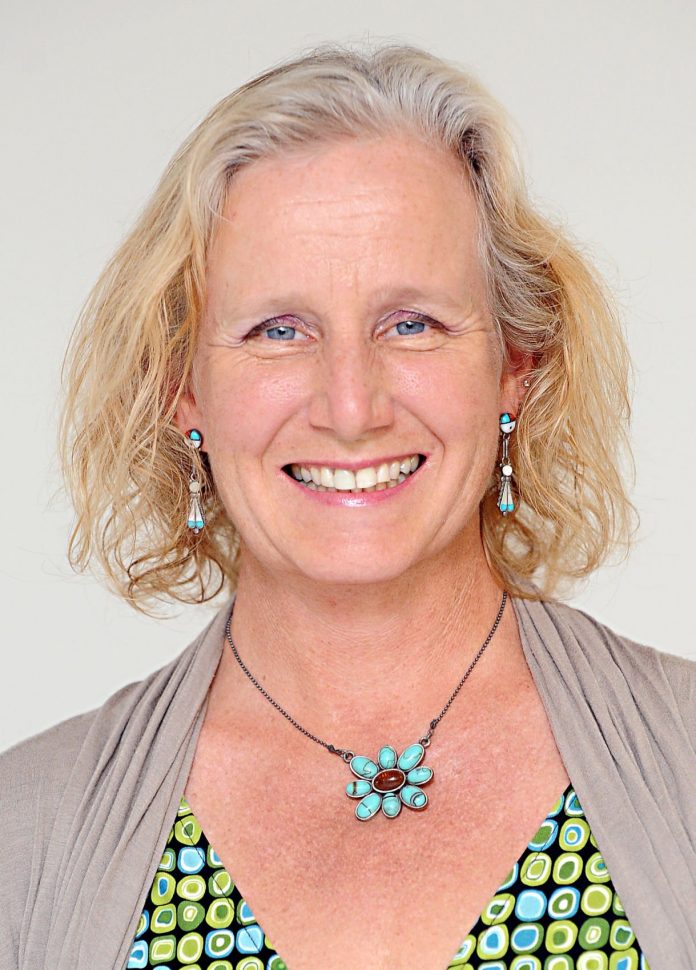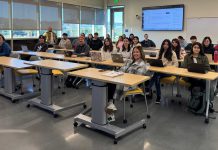Gilroy Dispatch: Briefly describe your background and experience. Why are you qualified for this position?
HB: I am an employee of the county office of education for 13 years. As a special education teacher and site lead I have a working knowledge of the laws, obstacles and resources facing teachers in the profession. Working within the special services realm, I am accustomed to working with families, and other community stakeholders in a group setting where all parties have individual agendas, and it is my job to bring the team to consensus around the student’s best interest in a timely manner. I am student focused and outcome oriented. I am interested in representing the needs of students, teachers and families in my hometown. I raised two children, both attended GHS and both are attending college. I also see serving the school board as a way to stay connected to all the amazing programs and activities our local schools have to offer.
GD: What are your thoughts on Common Core? Did you support it? What do you thinks needs to be done to make it successful?
HB: The common core directive was designed to implement action based on national values. The state has made an investment designed to shift practice and drive the resources in a moral imperative of social justice, every student’s right to a quality education. As an educator I am eager to embrace the fundamental concepts of a universal design for learning that will bring to light the different learning styles and needs of individual students and communities. Teachers will be empowered to reach students at their level of need and have the time to develop assessments that will ensure understanding. This being said, teachers will require effective and unfettered time for professional learning teams and the district will need to understand the importance of the investment of time, money and resources to train for fidelity of implementation.
GD: The City is experiencing a boom in growth, especially with its residential developments. More residents will undoubtedly have an impact on GUSD, what do you feel is the best way to handle the influx?
HB: In efforts to manage sudden student population increase, the immediate solution has been to raise class size. Class sizes are the highest in recent history and there is no plan to reduce them. Grade levels are combined as a solution to keep class size under control. That is observable history. I am not privy to the planning and conversations the board have been engaged in over the past year as this growth has neared completion. I make the assumption that this very issue is at the heart of all interactions and I would like to join the discussion. I want to represent the teachers and uphold a student’s access to effective educators under a new curriculum.
GD: Do you think it should be easier to fire underperforming teachers? What steps should be taken in order to do so?
HB: There are protocols in place for the termination of all employees, tenured or otherwise. These systems are reportedly enforced, with at least 24 effective terminations just last year. I am at the forefront of professional development at the county office. The county has committed over 80 percent of its common core budget to the training, monitoring and continued development of best practice implementation. New teachers are provided ongoing peer coaching in addition to professional learning teams to assure the county’s vision is being upheld with fidelity. Teachers and students will benefit from on the job training, behavior support and continued reinforcement of the district vision. With these systems in place, a teacher’s effectiveness can be assessed. Best practice and professional growth can then be supported. Gilroy is having trouble keeping good teachers. Let’s focus on that.
GD: What are a few of the goals you would like to achieve if elected to the school board?
HB: Raising two young adults, I have had the opportunity to get to know many young people in our community. From conversations with them, I have learned that teachers do not always impart the value of Gavilan College as reputable college choice. That needs to change. I am seeing young adults who once had honest career and vocational aspirations, waver in aimless pursuits. I would like to see Gilroy produce ready, eager and qualified workers. I see GUSD as poised to help prepare our community to be good employees. Employment IS the optimum and best outcome for all adults. We are in a position to help people achieve gainful employment based on their interests. Four year college is an aspiration of many and Gilroy is effective at producing students with competitive transcripts. This focus has been to the exclusion of those who have vocational job and career aspirations. Not every success story begins with a degree, and many failures result from a lack of career preparedness. To serve our diverse community we would benefit from diverse post school options.
GD: What do you feel are some of the biggest Issues GUSD is facing? Briefly explain how you would fix them.
HB: I am not engaged in the conversations taking place on the board, so I have an outsider’s perspective. GUSD is facing population growth, limited resources and a lack of trust within the organization. As resources become tight, misunderstanding and mistrust come to the forefront. Working with stakeholders in the organization and the community to demonstrate respect, professional trust and overall support of creative thinking will help bring pride and commitment to the vision of the district. What is the vision and mission? Is it being well communicated? What can we rally around as a collective educational team? I would like to see a change in climate, less focus on data and more focus on best practice support and professional development within the organization. Gilroy can be a place where teachers come to learn and improve their practice, a place where students have access to confident educators who are valued and who value their students’ learning.
GD: Technology in the classroom is on the rise. What are your thoughts on using tablets and other devices as learning tools? Are they helpful or a distraction? How can schools, in your opinion, put these to use most effectively?
HB: Technology is a tool. These tools are effective if used appropriately and responsibly. It is pointless to throw technology into a classroom without a plan of action. I have seen classrooms filled with costly equipment that goes unused or misused for lack of direction and sufficient training. Technology is essential for the job force today. We would be remiss in not providing access and competence training in these areas, however, throwing tech in is a waste if those funds are not matched with the training and support for ongoing monitoring of these resource tools. If Gilroy is going to invest in tech, they will need to invest in training, dollar for dollar.
GD: What is your position on charter schools?
HB: Charter schools are an endeavor of groups who want to work outside the constraints of the district to approach education in a different way. As more groups take risks to realize their educational visions, districts are denying their charter proposals, and a growing number of these proposals are going to the county for approval. There is now an entire department at the county office just to manage charter schools. I do not anticipate Gilroy having any future interest in approving charter schools because they are not consistent with the vision of the district. The role of approving charters should be left to the county, as it has the experience to guide those entrepreneurial risk takers to help them meet their best potential.
The following is a Q&A sent out by the Gilroy Dispatch and answered by Heather Bass, a candidate for the Gilroy Unified School District Board of Education. Links to the other candidate’s answers can be found at the bottom of this article.
Visit Heather’s campaign site here.
Heather can also be reached at he*********************@***il.com.














